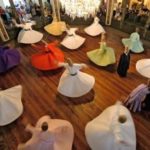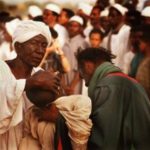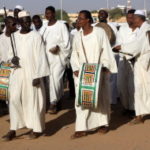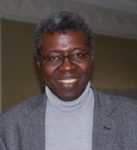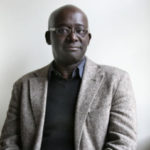Sufis have historically been at the forefront of major transformative eras in many Islamic countries. In many settings they have been peacemakers but have also been associated with violence and destruction. In the post-colonial world Sufi orders have been banished, destroyed and driven underground. However, we are now experiencing a global rebirth of Sufi influence in the political discourse and daily practices in our countries of focus.
In this project we ask what has made Sufism successful and effective at managing religious pluralism, ethnic and regional diversity in places like Senegal, the Ottoman Empire/Turkey and India. We will also study the role of Sufism in Pakistan where Sufi orders’ influence in shaping political theologies has been far more limited. Additionally, we seek to understand the relationship between Sufism and modern Islamic movements and will explore why Sufism is now seen as an antidote to political Islam.
March 2016 – Report on Research in Senegal
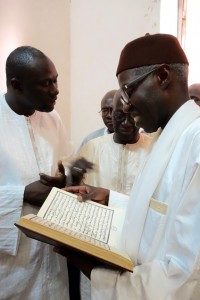 In March of 2016, Souleymane Bachir Diagne, Mamadou Diouf, Kathy Ewing, and Karen Barkey, the Primary Investigators of the Sufi Islam in 21st Century Politics project within the Henry Luce Foundation grant to CDTR/IRCPL, took a research trip to Senegal, accompanied by Toby Volkman, the Director of Policy Initiatives at the Henry Luce Foundation.
In March of 2016, Souleymane Bachir Diagne, Mamadou Diouf, Kathy Ewing, and Karen Barkey, the Primary Investigators of the Sufi Islam in 21st Century Politics project within the Henry Luce Foundation grant to CDTR/IRCPL, took a research trip to Senegal, accompanied by Toby Volkman, the Director of Policy Initiatives at the Henry Luce Foundation.
During this trip they spent one day in Touba, the Mouride capital of Senegal, and one day in Tivaouane, the center of the Tijaniyyah. They attended and spoke at a conference organized by one of the leaders of the Mouride brotherhood and president of the Al Azhar Institute, Serigne Mame Mor Mbacke, and spent a day of conversation at the West African Research Center (WARC) to discuss toleration, Islam and the Sufis in Senegal with scholars and religious leaders in Dakar.
A full report this trip and the associated research is now available here.
Project Leaders:
